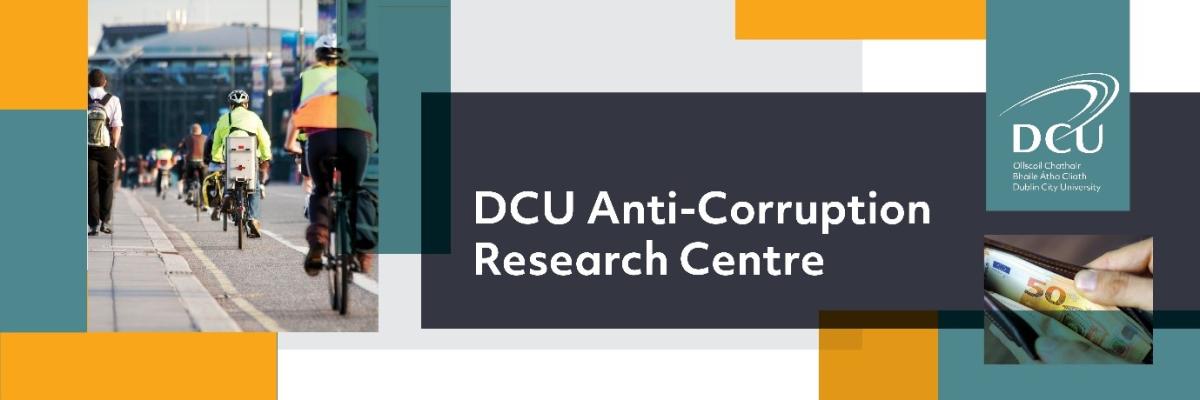
Research Newsletter - Issue 59: Spotlight

In recognition of the importance of understanding and fighting corruption, this year saw the launch of the DCU Anti-corruption Research Centre (DCU ARC). ARC is a truly interdisciplinary endeavour and is co-directed by Dr. Michael Breen of the School of Law and Government and Dr. Rob Gillanders of DCU Business School.
ARC’s mission is to advance knowledge on the causes and consequences of corruption and support the development of new anti-corruption policies and initiatives, in Ireland and abroad.
According to Transparency International, six billion people live in corrupt countries. Corruption, the abuse of public power for private gain, harms economies and people. By distorting choices and the framework in which decisions are made, corruption undermines social and economic innovation. By increasing red tape and undermining the efficacy of investment in infrastructure, corruption harms entrepreneurship. Corruption disproportionately harms the vulnerable in society, for example by reducing vaccination rates of new-borns, facilitating organised crime and the drugs trade, and by exacerbating income and gender inequality. It is therefore not surprising that its eradication is central to the United Nations’ Sustainable Development Goal 16, viewed by many as a foundational goal of the global agenda to create a prosperous and viable future for all. Corruption is not just a problem of developing and emerging economies.
Corruption can be found in every society. In the European context, even Finland and Denmark, commonly viewed as amongst the least corrupt societies in the world, have had high profile corruption cases in recent years. Other member states, have longstanding and ongoing legacies of corruption stemming, in part, from their experiences with centralised and highly regulated economic and political systems. Eurobarometer exercises tell us that nearly 40% of firms view corruption as an obstacle to doing businesses and that two thirds of citizens think that corruption is widespread in their country. A recent report submitted to the European parliament estimated that the total direct and indirect costs to the EU are between €179 billion and €990 billion per year depending on the measure of corruption employed. Even the perception of corruption poses an existential threat to European social democracy as it undermines trust in politicians and the political process and thereby fuels the rise of populism.
ARC’s ongoing and published research projects in 2020 have included investigations of the links between tax evasion and corruption; the importance of press freedom as an anti-corruption watchdog; how corruption shapes access to water and electricity infrastructure; and the deeply damaging effects that corruption has on health outcomes such as infant mortality and on domestic violence.
To fight corruption, insights are needed from across the social and natural sciences. For example, technological solutions can make it more difficult for corrupt bureaucrats to get away with embezzlement, and education can help bolster anti-corruption norms.
Who to contact:
Anyone who is interested in getting involved with ARC is more than welcome to email either of the directors (robert.gillanders@dcu.ie or michael.breen@dcu.ie).
